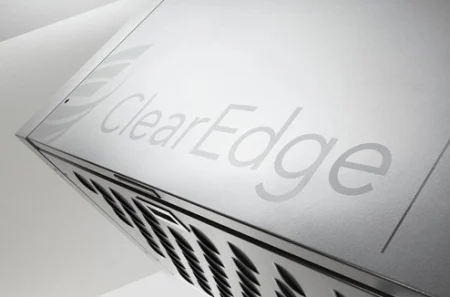Fuel cell technology has been steadily making the transition from research and development to commercialization over the past year.
And, while the path forward for the industry is still not totally clear, a global market for stationary fuel cells is blossoming–including an export market for American fuel cell manufacturers.

Last year, Connecticut-based FuelCell Energy provided grid-tied fuel cells for a South Korean utility.
Now, ClearEdge Power, a Hillsboro, Oregon-based manufacturer of stationary fuel cells, has signed a $500 million deal to supply 50 megawatts (MW) of fuel cells to Güssing Renewable Energy (GRE), in Austria.
Over the next 36 months, ClearEdge will deliver 8.5 megawatts (MW) to GRE for installation in Güssing, Austria, where GRE is headquartered. Güssing is the first community in the European Union to produce 100 percent of its energy from renewable resources.
GRE’s energy technology solutions are based on “carbon recycling”, including anaerobic technology that converts organic mass, such as crop waste, micro algae, urban liquid wastes, and food processing waste streams into biogas. With the help of bacteria, the materials are fermented in an anaerobic, or oxygen-free, fermenter. The resulting biogas can be burned in an engine, or used to generate electricity through a fuel cell.
Last year, Southern California Gas invested $1 million in ClearEdge. Since then, ClearEdge successfully completed a $73.5 million financing round, and secured a grant from the U.S. Department of Energy to deploy fuel cell technologies.
Its fuel cells have been installed at various locations on the west coast, including multi-tenant housing, and installations for the hospitality, education, utility and public sectors. ClearEdge fuel cells have also recently been installed at Portland Community College and a home in California.
“With its flexible and modular power systems, ClearEdge Power has developed a distributed energy solution that will fundamentally change the way people receive power,” said Michael Dichand, Chairman of Güssing Renewable Energy, in a statement.
“We see these fuel cell systems as the perfect complement to our sustainably cultivated biomass facilities.”






